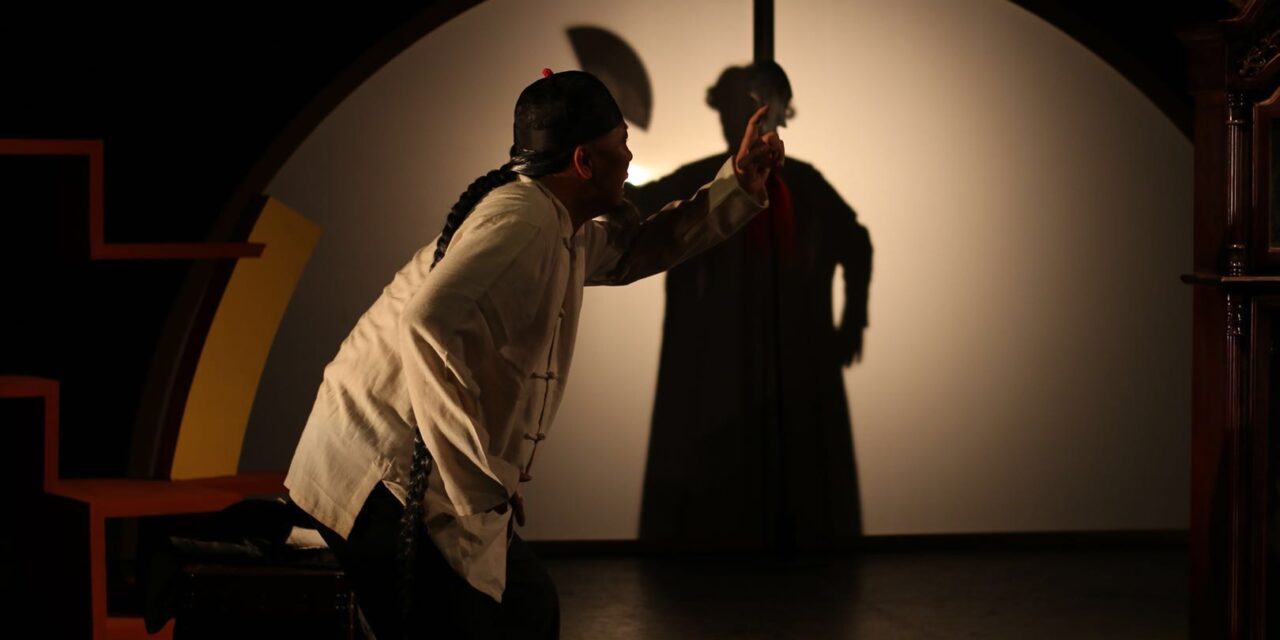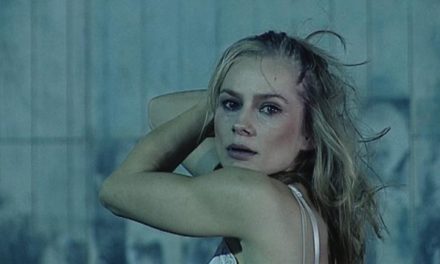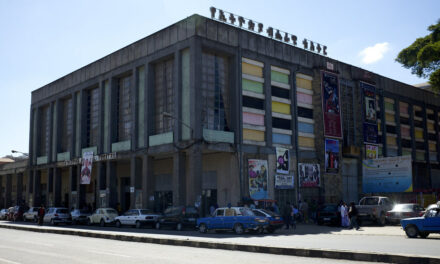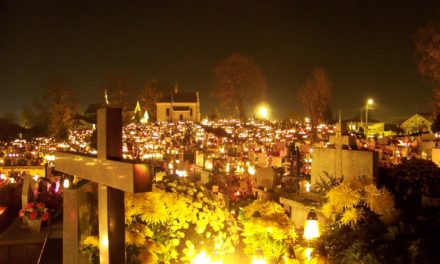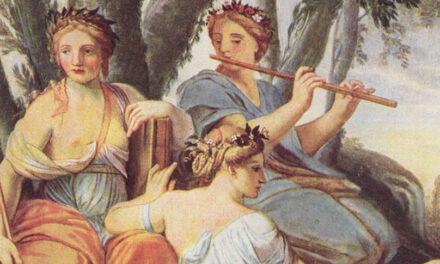Having been trained as a theater actor and director, I have been engaged with many kinds of theatre festivals in the past years. Also, having written for the China spotlight section of The Theatre Times, I have been able to gain insight into online theater festivals, especially those involving the Chinese industry and Chinese artists. However, when I was approached by Dr Magda Romanska from The Theatre Times in 2018 to co-create with the International Online Theater festival (IOTF) with Christopher Harris, I wondered how we could make a theater festival that was internet compatible. Although none of us had a clear answer for that question, we kept it in mind and produced IOTF for three rounds, IOTF 2019, 2020 and 2021 with my colleagues Prof. Maria Delgado, Gabriel Vivas-Martinez and Alma Prelec, Dr Magda Romanska, Dr Kasia Lech. Though we never arrived at a complete answer, with practice, we gained valuable insight on how an online theatre festival could meet the needs of today’s theatre industry. Also writing for the China Spotlight section of The Theater Times, I have some reflections on online theatre festivals, and those were especially related to the theater industry and practitioners from China.
“Transcultural Collaboration Can Change The Game” – IOTF 2019
The first round of IOTF was launched with the collaboration between The Theatre Times and The Digital Theatre Plus. We aimed to create a festival in which each country and culture could freely show their ideas and works on one platform. We believed in both pluralism and transculturalism.
“In the span of one month, IOTF 2019 presented the work of 30 international theatre artists and companies, from many countries, including Complicité, Frantic Assembly, National Theatre of Australia, Vakhtangov Theatre and Grand Teatre de Liceu, and such iconic productions like A Disappearing Number, Things I Know To Be True and The Blue Bird trilogy.” – IOTF 2019 Press Release
We have much appreciation for all the artists who participated and all the candidates who approached us. We are also grateful for the cultural plurality of our team. Chris is a theatre maker from south Wales with experience working in European and British theaters. I’m from China and have been teaching drama translation, interculturalism, and traditional Chinese theatre for years in China and the UK. Our executive directors are Dr. Magda Romanska, who specializes in European and American theatre and dramaturgy, and Dr. Kasia Lech who is an academic and practitioner of Polish and European theatre. We are from different cultures and probably have different tastes. But our cultural diversity and our common belief in pluralism made the first online theatre festival possible.
Based on the cultural plurality of our team, we practiced transculturalism as a methodology of communication and curation. It would have been impossible for us to work together as a team if there were not good communications within the production team and/or between the team and the artists. We were all trying to respect, understand each other and our cultural backgrounds. As a co-artistic director I did not recognize myself as a judge but an agent who needed to understand my colleagues, help the candidates, and curate the work we chose. For instance, when I talked with Director Shoule Li from Pythonland Theater in Beijing in 2018, I was surprised by his profound knowledge of Chinese traditional and modern theater and his creative practices of “organically merging two theatrical traditions (the traditional Chinese theater and the modern Chinese theater) on one stage”. His work Pythonland 2016 was one of the best representations of his artistic ideology of cultural merging and I decided to invite Shoule to stream this work on IOTF 2019. As I wrote in my curatorial for Pythonland 2016, “this is a theatrical exercise that holds the potential of becoming an event in which the onstage action is related to what is happening offstage”. Streaming the play was not only a transcultural collaboration between a US-based global platform and a Chinese director but also a trans-temporal performance between the traditional theatrical stage and the contemporary contexts. To be fair, Shoule’s work was difficult to defined because it was so innovative. It was neither a traditional Chinese theatre nor a modern drama. It was just itself. As the artistic director who was responsible for curating the festival, I wanted to present this piece as it was. We wanted to present Shoule’s work to the world authentically and without imposing our own lens. This was why we set up ourselves with transculturalism and pluralism. It was important to us not to manipulate or twist the work with a western gaze.
“In A World Where You Can Be Anything…” – IOTF 2020
In 2020 we launched our second round IOTF. At that time, collaborated with my colleagues, Prof. Maria Delgado, Alma Prelec, and Gabriel Vivas-Martinez, from Royal Central School of Speech and Drama, and Dr. Magda Romanska, Dr. Kasia Lech, we explored the meaning of the Internet. The internet, as a virtual space where there was the potential of art, is endless.
“Our theme of transformation and resistance – ‘in a world where you can be anything…’ – aims to create an online space that blurs geographical boundaries, rejects simplifications about borders and national identities and, most crucially, brings us together as a community to think about what it means to be human.” – IOTF 2020 Press Release
In 2020, I invited another emerging Chinese director Xuexi Li and his team to participate in the festival. The ideology of his play The Clock God from the West coincided with our topic of discussing what people would do if they got the superpower as we have in the virtual world on the internet. Streaming this piece not only brought a great opportunity for the audience of IOTF to enjoy Xuexi’s work, but it also gave Xuexi Li a chance to reflect on the ideology of his production. In my post-show interview with Xuexi, he said that; “I wanted to show the work of traditional Chinese theatre practitioners (to the world). (In the play,) What he (the protagonist) wanted to do was what traditional theater practitioners (like me) today want to do. They just want to keep the art form. Many indigenous Chinese art forms have disappeared over the past few, globalized decades. The traditional theater will probably be the next. Most younger Chinese people are unfamiliar with it. As traditional theater practitioners, we don’t have any magics and we cannot go back in time or change how contemporary audiences feel about traditional theater. What we can do is find ways of surviving and coexisting with contemporary theater. Hopefully, The Clock God from the West provided practitioners with new ideas on how to survive in the contemporary theater landscape.”
By defining the past years as globalized decades, Xuexi implied the influences of free trade, world politics, and fast-developing technologies, and of course, the internet were brought in China by globalization. Though they brought many positive influences on our life, including easier international communication and transportation, what warrants attention is the negative parts of them, such as the disappearance of indigenous culture. Though we may not have the magic powers to reverse the disappearance, we nevertheless must try to do all we can.
As a graduate of the National Academy of Chinese Theatre Arts, Xuexi and his play’s incision in the global online festival showed his juniors it was possible for the younger generation of Chinese practitioners to present their work to the world. IOTF 2020 proved that anything is possible in the virtual world if you know how to use it. You can accept the negative influences the internet brought on you, being quiet. But you can also reject the negative influences and try to use the internet to stop them. This is what we would like to tell the audience, be responsible and responsive to the magic Internet.
“R3: The Redefinition, Reimagining and Renaissance” – IOTF 2021
In 2021, as different parts of the world were in different phases of lockdown, we launched our third IOTF. We expanded to include a bigger picture of the theatre industry in a challenging but transformative era.
“IOTF 2021 showcases 33 global productions made and/or captured during the lockdown as artists, theatres and audience adapted to the challenges of making work during the pandemic. As the move to digital spaces has shaped all our lives the possibilities of using this new online ‘space’ to engage audiences as ideas of the ‘live’ are refashioned” — IOTF 2021 Press Release
This year’s festival features three different sections:
- Redefinition means a basis for the new world.
- Reimaging means an intention and response from younger generations.
- Renaissance means opportunities are created in a new era, but it also means how we are not able to be separated from the past in a ‘structure of feeling’.
In my curatorial works for Chinese artists, I highlighted director Joe Chen who brought us with his latest short film “An Opera Boy and his paradise”. The production was only eight minutes but within those minutes. It showed the various physical and social efforts it takes for a transitional Chinese theatre apprentice to begin his journey to becoming an actor. Although the pandemic has been a devastating force majeure to theatre industries throughout the world, we must not let them remain wounded or disappear. We must take our cues from Joe Chen and other artists of the IOTF who used Zoom, VR/AR, and social networks to create innovative and vigorous work. Joe’s work did not directly ask us to do something “revitalizing” for theatre practitioners. However, through spectating how hard and efforts the protagonist was to protect his belief in Chinese traditional theatre, we could find a close connection between the production and the themes of IOTF 2021.
Because of the pandemic, the global theatre industry is undergoing a tremendous transition. We saw a lot of closing down, unemployment, and devising of art forms. We feel not only theater practitioners ourselves need to redefine and reimage our works and ways of working. Everyone in the world is responsible for making a chance for theatres and the theatrical industry to get a rebirth to enter the Renaissance.
This post was written by the author in their personal capacity.The opinions expressed in this article are the author’s own and do not reflect the view of The Theatre Times, their staff or collaborators.
This post was written by Xunnan Li.
The views expressed here belong to the author and do not necessarily reflect our views and opinions.

